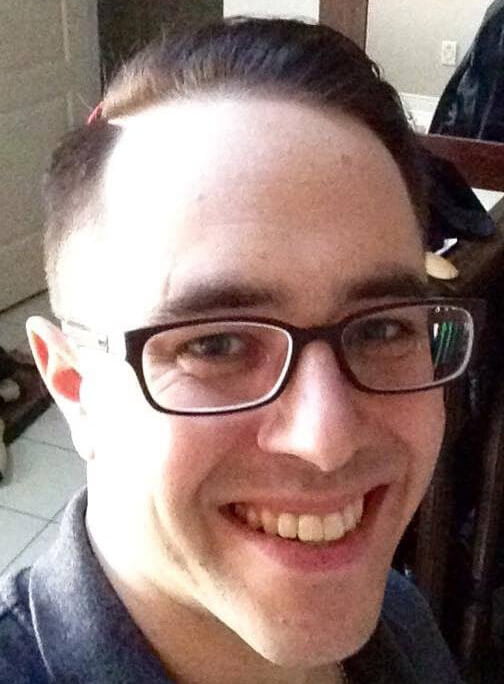
Earlier this week, an Orthodox Jewish student at Montreal’s Concordia University was reportedly bullied by a peer over his decision to wear a kippah.
The individual justified this statement by claiming that Concordia is an “Arabic university.”
Unfortunately, this kind of incident isn’t entirely surprising. And, while this may not be the same Concordia University that was home to the Benjamin Netanyahu riots in 2002 (to quote Concordia VP Bram Freedman), the incident is still yet another example of 21st-century animosity towards Jewish and pro-Israel students on campus.
But here’s what should surprise you: Freedman issued a statement recommending that the student file a complaint with the university and let it deal with the incident accordingly. That a high-ranking school official directly addressed this antisemitic issue and offered the victim the school’s best resources available should be very encouraging to those faced with blatant discrimination.
The student’s response, however, was a flat-out refusal.
“Filing a complaint would make a mound out of a mole hill and may potentially fan the flames of intolerance,” he said. “I don’t want to be responsible for a tit-for-tat exchange between radical Jewish and Arab students. I’d prefer to let the issue die down and hope that this is the last of these type of incidents at Concordia.”
I get it. He doesn’t want the attention nor does he want this hanging over his head. He also doesn’t want people bothering him about it. Students are busy enough as it is with their studies and with the rest of their lives.
But here’s the thing: as much as he’d like it to, this issue will not die. Anyone who believes otherwise is kidding themselves. Why else would oh so many Jewish campus organizations spend time and resources in a bid to make life easier for Jewish students on campus?
And here’s another thing: he uses the term “radical Jewish students.” There is absolutely nothing radical about wearing a kippah in public. For G-d’s sake (pun intended), we live in Canada. To borrow a phrase from our Prime Minister, it shouldn’t be a problem to display your religion proudly, “because it’s 2016.”
Yet, paradoxically, the student has expressed his right to wear his religion proudly, calling on fellow Concordia students to “proudly wear your yarmulkes. I know a lot of you take them off out of fear, but fear only encourages hate. Don’t be afraid, be Jewish, be proud.”
So, to sum it up, he calls on his fellow members of the Tribe to proudly don their religious garb, but refuses to stand up for himself when it comes to interacting with university administrators.
When it comes to advocating for yourself as a Jew, I call that doing only half the job.
I understand that he might have reservations about the university actually doing something about this incident. Taking things up with “the system” can be annoying, time-consuming and painful. Red tape, diplomacy and legal/regulatory jargon can make one feel like dealing with the process of complaining is even worse than the incident itself.
But it’s not like Concordia wants students to feel intimidated. As stated by Freedman, the school would like to help. And, in a world where so many want Jews to suffer (like our “Arabic university” guy), we need all the help we can get.
I wear a kippah all the time. I didn’t growing up and only started to wear it after I came back from yeshiva and started university. And even though it was a predominantly Jewish public high school that I attended, the thought of wearing one scared me. I recall one classmate who started wearing a kippah in class and students (Jewish ones) made fun of him. He stopped wearing it after a few days, and I felt terrible for him. But I was too much of a coward to stand up for him or to take up the issue with a teacher. You know how high school social circles behave – standing up for the little guy or complaining to a teacher can mean being sentenced to a life of ridicule by your peers.
But this is university, not high school. Those social norms don’t matter any more. If you’re being targeted, there’s no reason not to stand up for yourself as a responsible and self-respecting individual.
Sometimes, you have to trust the system.
At B’nai Brith, we deal with countless stories of antisemitism, discrimination and hate every day. It’s our jobs, and we take huge pride in doing it, to defend victims of those crimes. Even if you’re afraid, we’ll give you the strength to fight back.
Put it this way: as a visible Jew, you represent the Jewish people. If you yourself misbehave, chances are people are going to start believing Jews as a whole are a misbehaving bunch. So be a mensch, a role model, a kiddush hashem. If you don’t stand up for yourself as an individual Jew, you allow the antisemites to victimize the entire community.
We just celebrated Rosh Hashana. There’s a lesson that it’s a time where we acknowledge G-d’s almighty and merciful rule over the world. G-d might place challenges in our paths but they’re not ones we can’t overcome. Therefore, the goal is to trust G-d.
This year, let’s trust not only G-d, but ourselves in our ability to stand up for ourselves as Jews.
Tevy Pilc is B’nai Brith Canada’s Staff Writer/Researcher.


